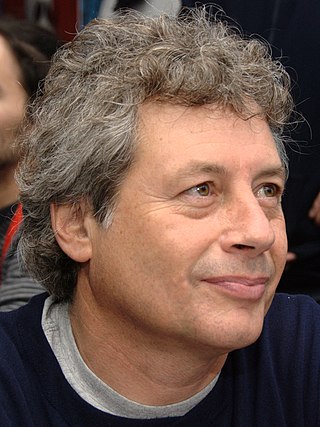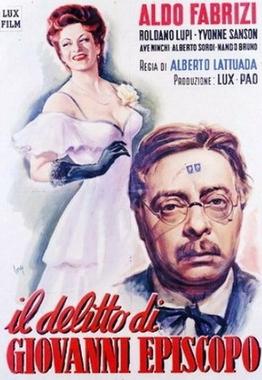
General Gabriele D'Annunzio, Prince of Montenevoso, sometimes written d'Annunzio as he used to sign himself, was an Italian poet, playwright, orator, journalist, aristocrat, and Royal Italian Army officer during World War I. He occupied a prominent place in Italian literature from 1889 to 1910 and in its political life from 1914 to 1924. He was often referred to by the epithets il Vate and il Profeta.

Nilanjana Sudeshna "Jhumpa" Lahiri is a British-American author known for her short stories, novels, and essays in English and, more recently, in Italian.
This article contains information about the literary events and publications of 1891.

Alessandro Baricco is an Italian writer, director and performer. His novels have been translated into a number of languages.

Berlin Alexanderplatz is a 1929 novel by Alfred Döblin. It is considered one of the most important and innovative works of the Weimar Republic. In a 2002 poll of 100 noted writers, the book was named among the top 100 books of all time.

Alberto Manguel is an Argentine-Canadian anthologist, translator, essayist, novelist, editor, and a former director of the National Library of Argentina. He is a cosmopolitan and polyglot scholar, speaking English, Spanish, German, and French fluently, and also Italian and Portuguese at a very advanced level. He left Argentina at the age of twenty, in 1968. He has lived in Israel, Argentina, France, United Kingdom, Italy, French Polynesia, Canada, United States and Portugal. Since 2021 he has directed an international center for reading studies in Lisbon, baptized in 2023 as Espaço Atlântida; In the biography of the center's website you can read: "He became a Canadian citizen and continues to identify his nationality as first and foremost Canadian."

Giovanni Placido Agostino Pascoli was an Italian poet, classical scholar and an emblematic figure of Italian literature in the late nineteenth century. Alongside Gabriele D'Annunzio, he was one of the greatest Italian decadent poets.

Timothy Harold Parks is a British novelist, author of nonfiction, translator from Italian to English, and professor of literature.

Teresa Ann Savoy, FRSA was a British actress who appeared in a number of Italian films.

The Tartar Steppe, also published as The Stronghold, is a novel by Italian author Dino Buzzati, published in 1940. The novel tells the story of a young officer, Giovanni Drogo, and his life spent guarding the Bastiani Fortress, an old, unmaintained border fortress. The work was influenced by the 1904 poem "Waiting for the Barbarians" by Constantine P. Cavafy.

Domenico Starnone is an Italian writer, screenwriter, and journalist.

Sinan Antoon, is an Iraqi poet, novelist, scholar, and literary translator. He has been described as "one of the most acclaimed authors of the Arab world." Alberto Manguel described him as "one of the great fiction writers of our time.” He is an associate professor at the Gallatin School of Individualized Study at New York University.

Flesh Will Surrender is a 1947 Italian drama film directed by Alberto Lattuada. It is based on the novel Giovanni Episcopo by Gabriele D'Annunzio. It was entered into the 1947 Cannes Film Festival.

Halcyon is the title of a collection of 88 poems by Italian poet Gabriele D'Annunzio, written between 1899 and 1903, and published in 1903. It was intended as the third volume of a seven-book work called Laudi del cielo, del mare, della terra e degli eroi which was subsequently interrupted in 1912 with only four volumes published: Maia, Elettra, Halcyon, and Merope.
The Intruder is an 1892 novel by the Italian writer Gabriele D'Annunzio. It is known as The Victim in the United States. It tells the story of the dandy Tullio Hermil who is habitually unfaithful to his patient and loving wife Giuliana, until the wife eventually does the same and becomes pregnant with another man's child. The book was published in English in 1897, translated by Georgina Harding.
Francesca da Rimini is a 1901 play by the Italian writer Gabriele d'Annunzio. It tells the story of how Francesca da Rimini falls in love with her brother-in-law in the 13th century.
The Flame is a 1900 novel by the Italian writer Gabriele D'Annunzio. It is set in 1883 Venice and tells the story of a young artist and his mistress, a famous but quickly aging actress. The story was inspired by D'Annunzio's relationship with the actress Eleonora Duse. The novel contains expositions of many of D'Annunzio's theories about drama, largely inspired by Friedrich Nietzsche and Richard Wagner.

The Daughter of Iorio is a 1904 play by the Italian writer Gabriele D'Annunzio. The play is written in verse and has elements of local dialect, proverbs and traditional rhymes from Abruzzo. It tells the tragic story of the love between a young female outcast and a shepherd who is being married off to a woman he does not love.

The Maidens of the Rocks is a novel by the Italian writer Gabriele D'Annunzio, published in 1895.

Donatella di Pietrantonio is an Italian writer who is best known for her novels My Mother is a River and A Girl Returned.
















